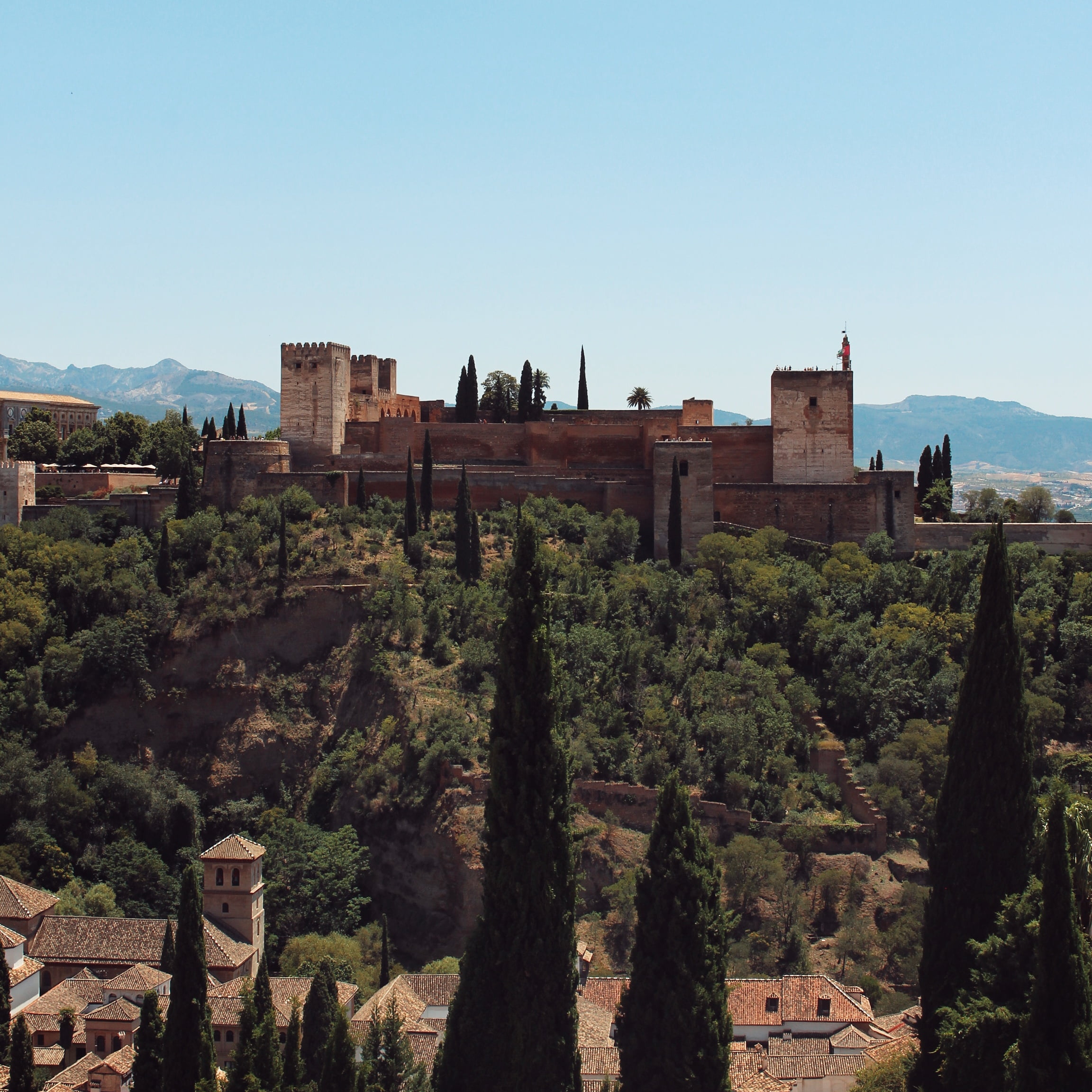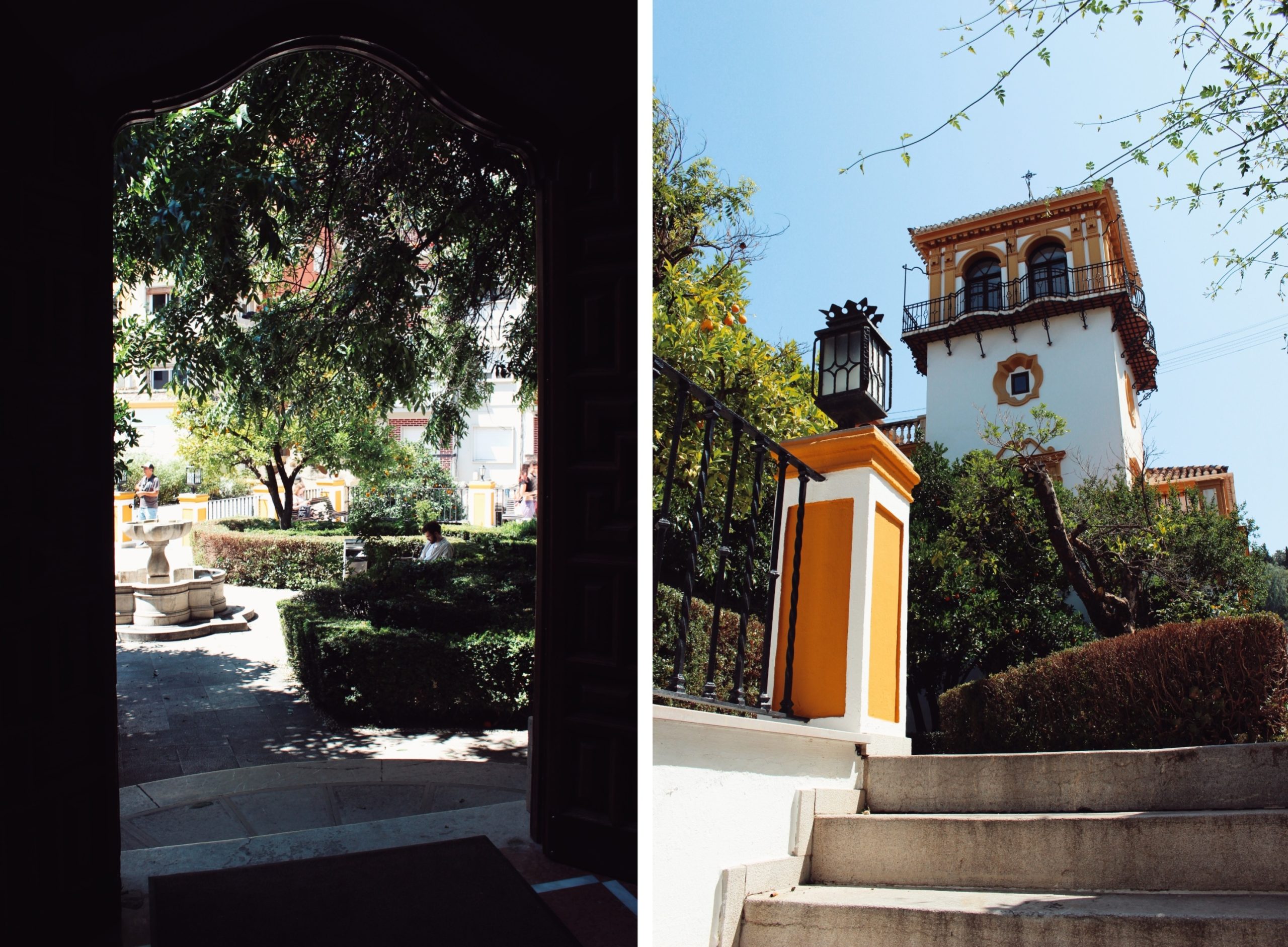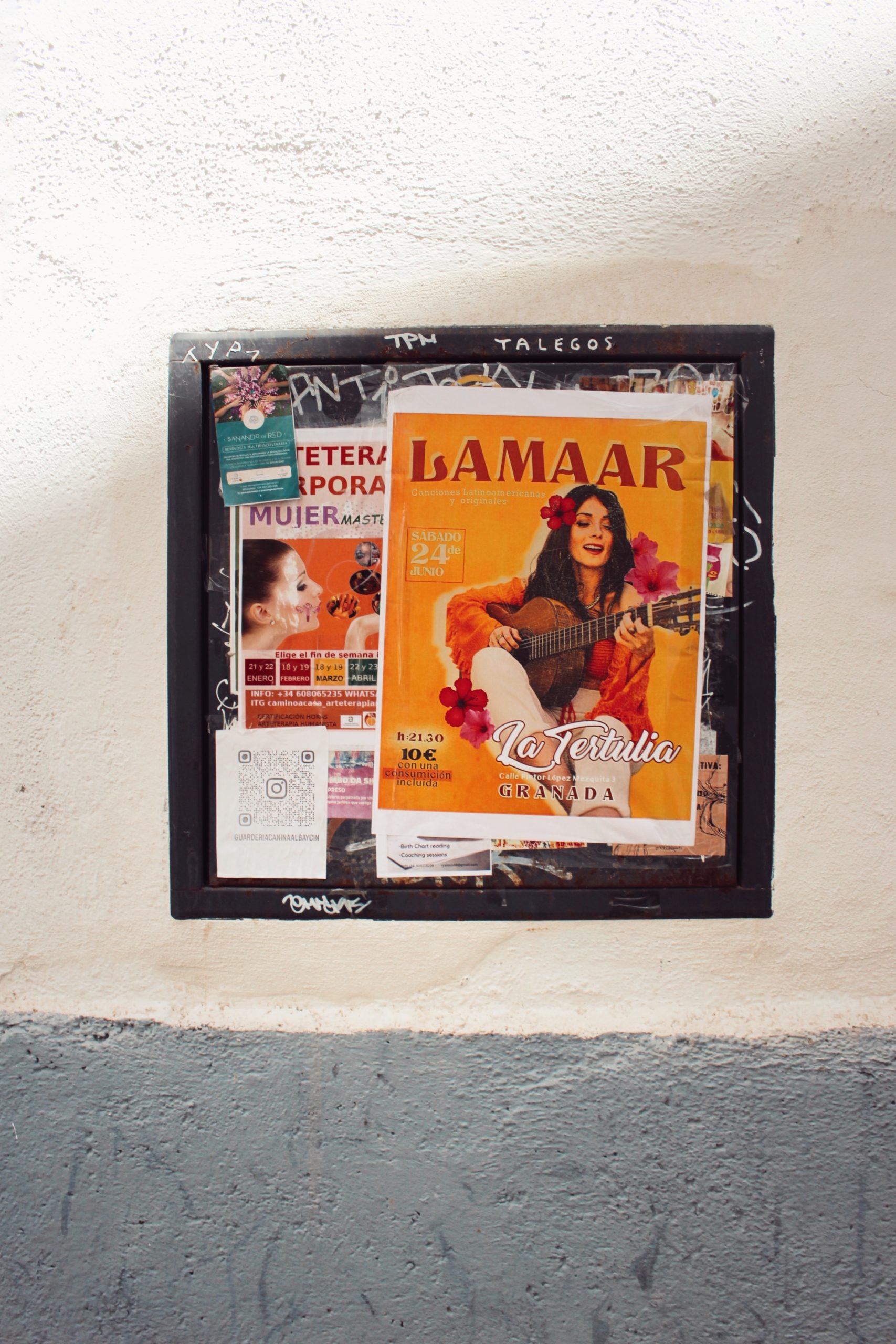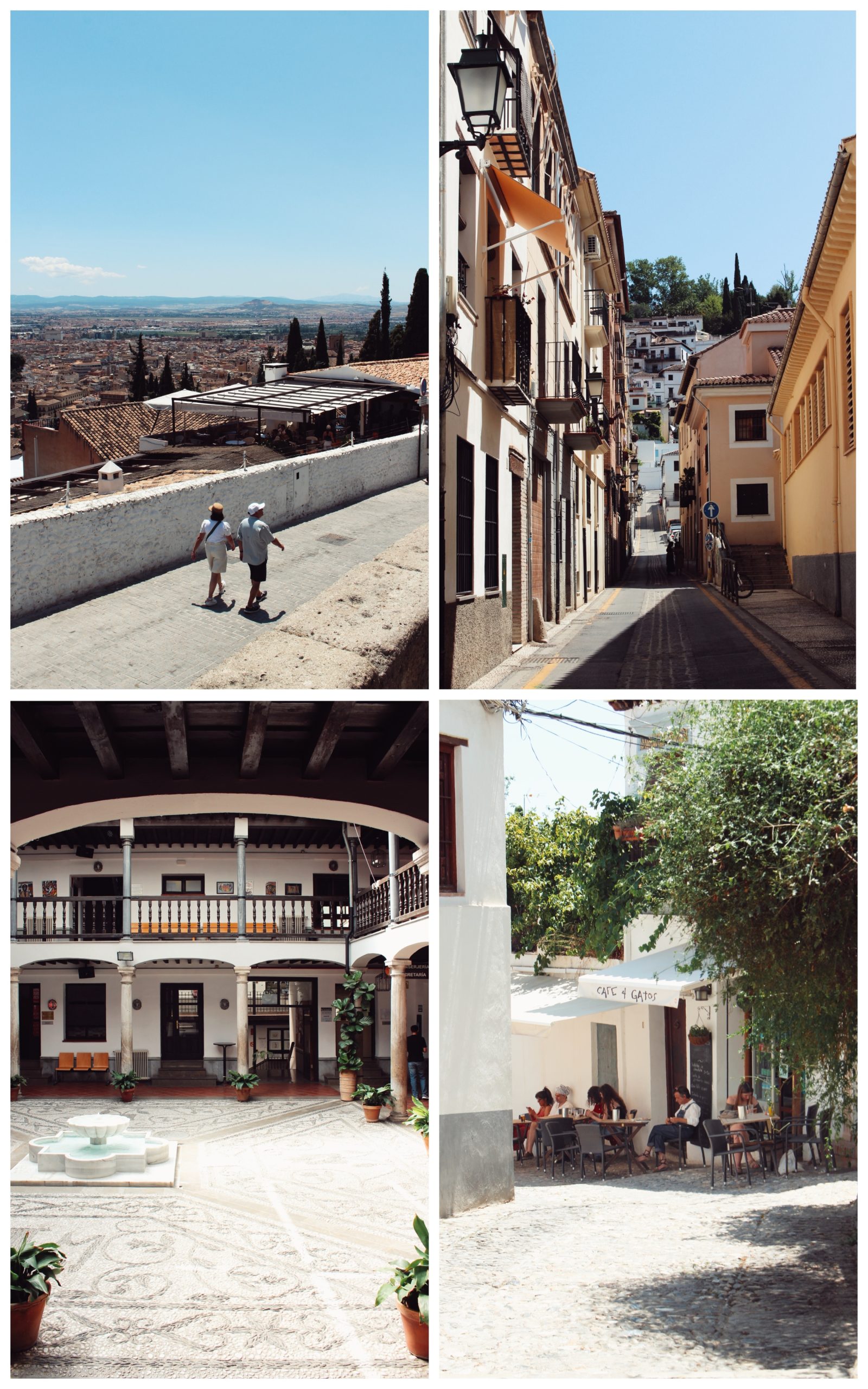If old dogs can learn new tricks, what are the chances of an aging Asian auntie learning to speak a foreign language?
By the time I reached the part where a woman starts to lie about her age, I decided to return to school.
I have moved to Spain with one specific goal in mind, to learn the language. I had used a month to prepare for my three-month course, hammering in on the pronunciation instead of the lexicon. Knowing quite well that at some point in time, my comprehension would fall apart. Yet, if l get lucky enough, I’ll keep bluffing my way out as long as I sound convincingly good.
Language learning is fun and can also be a cultural suicide. One of the many Catherine Tate’s hilarious characters – The Interpreter brings that joy and cringe.
As far as my Spanish pronunciation could go, I started practicing words like jewelry, scarecrow, enema, scandalous, hemorrhoids and menopause saying each one out loud several times, while making every effort to slice my cucumber with a butter knife.
Then I turned my attention to my carrot as I plowed on with double word phrases which I thought would come handy one day to women of my age and sensibility. The words slithered from my mouth, in the same way my carrot did against my dull kitchen knife. By evening, my jaw ached in protest. My facial muscles spasmed, like a Botox injection gone wrong.
Desert rat
Panic attack
Cry baby
Witch hunt
Nervous breakdown
Scrambled eggs
None of these however were of any use when my Spanish language professor commanded us to present ourselves in the class following a simple format: nombre, edad, nacionalidad and the things that one likes or anything that one feels sharing.
After a shaky start of exchanges, it dawned instantly on me that I’ll be in the company of a social media hating German, an introvert Scottish lass, a Romanian self-proclaimed vodka connoisseur and a sassy girl from Turkey who seemed to be friends with almost everyone at school. A Miss Congeniality in the making.
The second half prompted more revelations. There’s a judo junkie from South Korea that I would not dare to mess with, a Bulgarian guitar aficionado hermit, a petite girl from China and two Austrians. The first, a tall bloke who would often come obligingly to our rescue, when the class ran out of answers or was too scared or even too lazy to reply to the questions after a long night’s fiesta. The second, a pretty blonde who found sisterhood with two other girls from Holland. The three of them were inseparable and worked together as one, and as the ancient Greeks would call them, the Three Fates.
There were thirteen of us and all my classmates were in their early 20’s save for myself and an English chap. Mr. Union Jack from the Midlands, in his accented Spanish spoke eloquently about paella imbued with the wisdom of a 44 year old man. With his good grasp of Spanish, he even went the extra mile of describing his recent domestic quibbles with his mother-in-law.
I detected the quintessentially British overtone in his last statement. How his state of affair conjured a familiar image of Reginald Perrin from a late BBC program who can’t help but see his mother-in-law as a lumbering hippopotamus.
His sheer candidness struck me while finding comfort knowing that I wasn’t the old git in the class. My relief proved to be short-lived however when the fourth day came. Mr. Union Jack completely vanished, never to return again.
The possibility of an enraged hippopotamus swallowing Mr. Union Jack was completely absurd. However, the thought didn’t escape me. But there was a more pressing issue at hand. I, by default, became the oldest.
Back to school! This feels familiar >> https://t.co/4ZSzLbKwjk ?
Oh wait, did they say introduce yourself in Spanish? ??#LanguageLearning #spain ??@clmgranada @spain @SpainSEA @viveandalucia @CanalUGR @turgranada ??? pic.twitter.com/8rNVDhcfCH
— Jan Sevilla (@missjansevilla) May 9, 2023
When it came to my turn, I peppered my introduction with evocations of seaside living and sceneries, purposely avoiding the age subject. Then I went on to describe my cat’s schizophrenic episodes with great difficulty. With my Spanish rapidly depleting supply, I succumbed ultimately in the end and told everyone in class that I was 28. A total lie. Then quickly added ‘forever’ thereafter to lighten the blow of my deceit.
In Spanish, instead of saying “I am 28”, we say “I have 28 years old.” In English, “to have” is synonymous with “to possess”. So perhaps the addition of “forever” would come naturally too. I own it, and it’s mine. A predetermined outcome that 28 will always have its forever. To which The Three Fates in my class unanimously giggled in approval.
Assigning gender in Spanish is as important as olive oil and religion.
I’ve avoided the age debacle at that moment but later it managed to find its way to catch on, in the form of a nasty chronic lower back pain. For a week, I had to stay flat on my back with a hot water bottle in tow.
During my convalescence, I came across David Sedaris’ diary entries, where he moved to Paris to learn French at the age of 41. The beloved American writer, suffering from a kidney stone, could not have prepared himself for the country that invented the guillotine.
“Every day spent with you is like having a cesarean section”, remarked his instructor. Sedaris, together with other students would soon learn to dodge chalk, covering their heads and stomachs as their manic instructor hurled questions and insults at them, sending the class in smoky hallways and in his words, “engaged in the sort of conversation commonly overheard in refugee camps.”
If a reasonable full-grown man had endured a kidney stone while learning to speak the language of Molière and Hugo, how bad could it be for me, an aging Asian auntie with a lumbar discopathy to learn the language of Cervantes and Lorca in a country once known for its inquisition.

Contrary to Sedaris’ harrowing experience, my Spanish class at Centro de Lenguas Modernas, the academic arm for cultural and languages study of the University of Granada, was heaven. Although to reach its pearly gates, it is not without learning the basics of Spanish grammar. A labor of such feat that included placing the proper personal pronouns for inanimate objects for instance.
For a native Filipino speaker, this proved to be complicated. Where I came from, we use I (ako), they (sila) and he/she (siya) is gender neutral. The pronoun ‘it’ does not even exist as in English where it’s used to mainly describe things that have no gender. Assigning gender in Spanish is as important as olive oil and religion.
A table is a woman. A banana is a man. Hope is a ‘she’ as well an eggplant. While love is a ‘he’ and so is a cactus. None of their appearances match their sex. This hilarity jolted my classmates to “jajajaja”. And I was like “hahahaha.” They sounded different. But never mind. What worried me more was getting the right pronoun without ever offending a make-up’s masculinity or a libido’s femininity.


Under the tutelage of a patient la profesora, she has a habit of drawing pictures of a tree, a stick figure whose name was Jose standing next to the tree or that both objects appear far from each other to further demonstrate the idea of simple past present form.
On one occasion, she drew a caracol, Spanish for snail. The lesson’s objective was to differentiate which kind of past the snail inhabited. I found out that there are three types of ‘past’ in Spanish. While I could easily locate which tense I am in exactly in English, I felt I was constantly ‘In Search of Lost Time’. So I he buscado – busqué – buscaba for reasons that would enlighten me from the torment.
¡Dios mío! The answer was there all along in front of my eyes. The snail was looking at me. I’m the snail and I was looking at myself.
My classmates had already moved on and were eager to switch back to the present tense. I was still staggering to find which past I was in and in what tense. By the time I found the correct form, I made a big yelp! My classmates “jajajaja” drowned my whiny “hahahaha”.
But hope was not all lost. For oral readings were my expertise. My month-long pronunciation practice was finally paying off. How I made my classmates feel the ferocity of the lines I’ve read in class. Each sentence became a drama. Each pause, an agony. Each paragraph, a joy.
“Jajajaja” at last!

I guess that’s the thrill of being a non-native speaker trying to convincingly sound Spanish while desperately fumbling for the right conjugation in the need to exist in the present while glancing at the past at the same time welcoming the possibilities of the future.
So when my Spanish language professor addressed us ‘chicos y chicas’ on the first day of class, I knew right there and then, in the promising sweet spring of March that I may have to momentarily forget my lower back problem, perhaps just a little while longer.
Read Part 1 >> I Found ESPAÑA
In learning languages, there is always the sense of belonging at the same time becoming an outcast. Yet for all the little things you get right, there’s that feeling that you become your own star. What was the most enriching experience you had while attempting to speak the local’s lingo while on holiday? What were your favorite phrases and expressions? Feel free to share your most unforgettable stories and moments below 😉
BUTTER MY BAGUETTE
This website made of love strives to produce FREE CONTENT.
Help me tell more stories and keep this website free of any advertisement by supporting Flying Baguette in inspiring more people and connecting you with other cultures and communities around the globe. Donate a little or as much as you can afford to keep the magic of Flying Baguette going for years to come. Share your support through the icons below ⬇️













JAJAJA! I had fun reading. Reminded me of the time where I was learning Japanese. I kinda want to go back to a Japanese language school or I’m also thinking of learning Korean language. ????
When I travel I always make sure I learn the basics in the language of the country I’m going to. If not to make my life easier, then to build up an affinity with the local people.
The most complicated for me is German! I only know a handful of terms and have a hard time articulating a sentence.
In Portugal, at school, we learn at least English and French, or Spanish, by choice of one of the other two.
Obviously any Portuguese speaks at least “portunhol”, the famous mixture between Portuguese and Spanish.
I always make the effort to learn a few words and phrases when traveling somewhere new, as I feel it’s just good manners. However it’s been a while since I was somewhere long enough to really get immersed. I lived in China for 2 years and went without knowing anything. It showed. I quickly learned I would need to jump in with both feet to get by. I took lessons with a friend I made. She taught me Mandarin while we cooked lunch each week and in exchange I would attempt to teach her 3 year old some English. It was a fair exchange, and a really fun way to learn
You had me with that opening line lol! This post is written very well and very entertaining to read. The most enriching experience speaking the local lingo on holiday was trying to tell my Spanish girlfriend’s parents I would buy them dinner but what I actually said was if could they pay for it so it didn’t go down very well ha! Al Hambra looks epic in this photo dod you take it?
I’ve always wanted to live somewhere to really indulge in the language – I love learning the language of where I’m visiting. I love your honesty about your experience instead of going through it with rose colored glasses! Thank you for a realistic look at this experience, I think I can handle it – now to decide on which language.
Well done on taking the step going back to school and making efforts to become fluent in Spanish. It’s not getting easier the older one get, so I have huge admiration for you and appreciate you making the efforts. I can imagine the gender for nouns to be a right pain. It’s similar to German but in my native the table is male and the banana is female. Of course there’s no indication whatsoever so this is all learning by heart/ developing the language feel for it. How are you finding learning in a class? How often do you meet up? Is the class structured to having to team up regularly? I gave Spanish a chance at uni for one term (six months) and hated to partner up/I had no designated partner and missed out on activities in class this way, hence why I concluded at the end of the six months that learning with others is not my ideal learning environment. I practise a bit of Finnish these days and like you I speak it out loud with various intonations whilst prepping my meals. So That image deeply resonated with me. Keep it up Jan!
Carolin | Solo Travel Story
What a fun post of your learning adventure! I’ve been picking up Spanish and French for the past few years but haven’t yet made the leap to taking a language course while travelling. You are inspiring me.
I need to improve my comprehension and ability to formulate responses by interacting with native speakers, speaking casually, and at their normal rate. LOL, I always spend the first few days like a deer in headlights as my brain tries to separate the words, the next few days I’m on a time lag as I translate and then formulate a response.
Lyn | http://www.ramblynjazz.com
I learned my Spanish at University. I took a Languages, Economics and Politics degree from a London University and spent a year at a Uni in Bilbao, Spain writing my thesis – in Spanish.
I remember many of the feelings you express here when I was learning the language. Luckily, at the time, I had a long term Spanish girlfriend, so for a while I never got to speak English. I came back to England speaking English with a slight Spanish accent!
A lovely read and you certainly have an eloquent writing style that draws the reader in.
Things brings back all kinds of memories from my various French classes over the years. I will never understand gendered pronouns for everything but I’ve stopped fighting it haha. I imagine you got quite far with a 3-month course, well done!
I really enjoyed reading your post about your journey of learning Spanish. It was funny, honest, and relatable. I admire your courage and determination to overcome your fears and challenges, and to embrace the beauty and diversity of the Spanish language and culture. Your anecdotes and examples were very entertaining and informative, and I learned some new words and phrases along the way. You have inspired me to pursue my own language learning goals and to have fun with it.
I wish I had taken Spanish classes in high school more seriously at the time. I’d love to be able to speak it now. I’ve tried a couple different times, but without a structured program and teacher, it’s hard to stay on top of it.
I could not adore you more! I found myself laughing out loud at the struggles with learning a new language (at our age!!). As someone with no aptitude for language, you are an inspiration!
This reminds me too much of my struggles to learn Spanish. First of all, I sound like the most German Spanish speaking person in the world because I could not roll my rrrr if my life depended on it. Second, I still don’t have a grasp on the past so I always say “pasado”, make a hand gesture, and use the present tense.
I absolutely loved this! You brought the class to life, beautifully capturing the joys and tribulations of learning a language as an adult. We took Japanese classes for some years in our 30s and really enjoyed them. Although we did manage to upset the teacher inadvertently on one occasion, accidentally describing Japan as scary (“kowaii”) when in fact we meant cute (“kawaii”) – ah, the precision needed with pronouncing those vowels! Fortunately she understood in the end. Every language has its challenges but the process of attempting is enriching. Also – I laughed out loud at the Reggie Perrin mother-in-law hippo reference (and can still recall accompanying soundtrack too). Hope Mr Union Jack hasn’t been consumed by one…
This is brilliant! I definitely need to go back to class – I can understand plenty when I’m reading and writing but I’m like a rabbit caught in the headlights when I’m talking to someone and they go off topic. My neighbour remembers to slow down for about 30 seconds but then she’s back to chatting away at breakneck speed. 😂